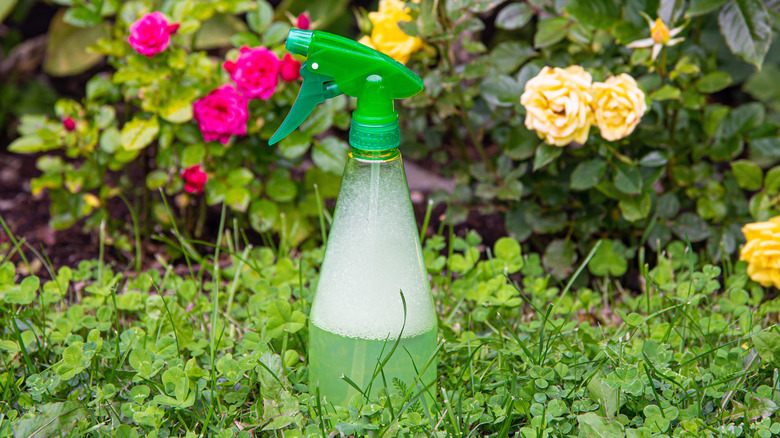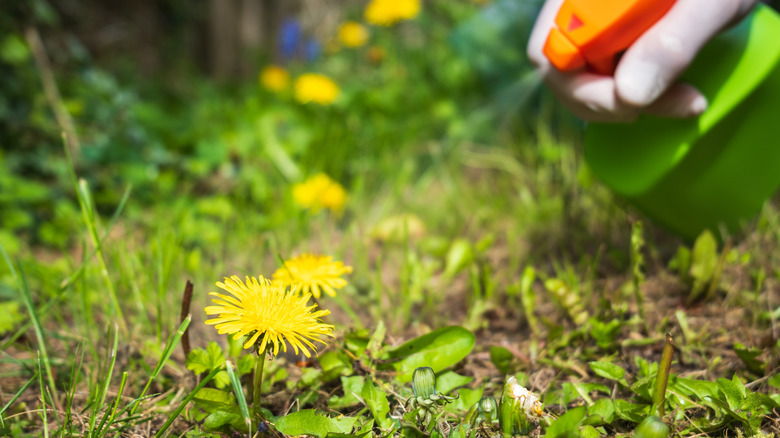Think Twice Before Adding Soap To Your Weed Killer. Here's Why
There are two main choices when it comes to weed killers. You can make your own using common kitchen ingredients that will tackle weeds in your lawn, beds, and borders, or you can buy commercially produced weed killers at the store. It can be a complex subject both in terms of environmental impact and effectiveness, and there is certainly one popular weed killer you should seriously think about not using. Fortunately, there are safer alternatives.
Whichever option you choose, adding a little soap is a popular hack that is supposed to make the weed killer more effective. It is intended to work as a surfactant. As odd as this might sound, it makes water wetter. The idea is that the weed killer goes further and adheres to the leaves better, so more is absorbed and the plant dies more quickly. In fact, in the 1970s adding detergent to herbicides and pesticides was actually recommended by some chemical companies.
So why would you want to think twice about adding soap to your weed killer now? Well, not surprisingly, formulations have changed over the years. Today, rather than increasing its efficiency, soap can break down the composition of the weed killer instead. As a result, experts now say soap is ineffective with commercial products. What's more, many store-bought weed killers already contain surfactants, so adding extra is pointless.
There are risks to adding soap to weed killer, but it's not all bad news
Some plants have a natural coating on their leaves to help protect them from disease, and it's possible soap might break this down, leaving them vulnerable. However, if too much soap gets into the ground it can upset the soil balance and may harm earthworms. If you aim to control weeds naturally with an easy-to-make solution, the right type of soap can still be beneficial. Choose something like Castile soap that doesn't have detergents, bleaches, or antibacterial additives, and you should get the desired results without the disadvantages adding traditional dish soap might otherwise cause. Homemade weed killers don't need much soap, so follow DIY recipes carefully.
Bear in mind that most weed killers made this way are nonselective. Any overspray will also kill grass and your favorite plants, so avoid spraying on windy days. It's also worth checking out some of the alternative weed control methods that don't involve using liquid weed killers at all. They may take a little more time, but they can be better for your yard's ecosystem and much safer for the plants you do want to grow.

